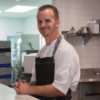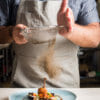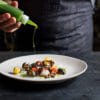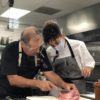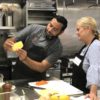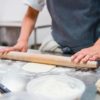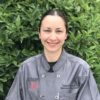How to Become a Pastry Chef
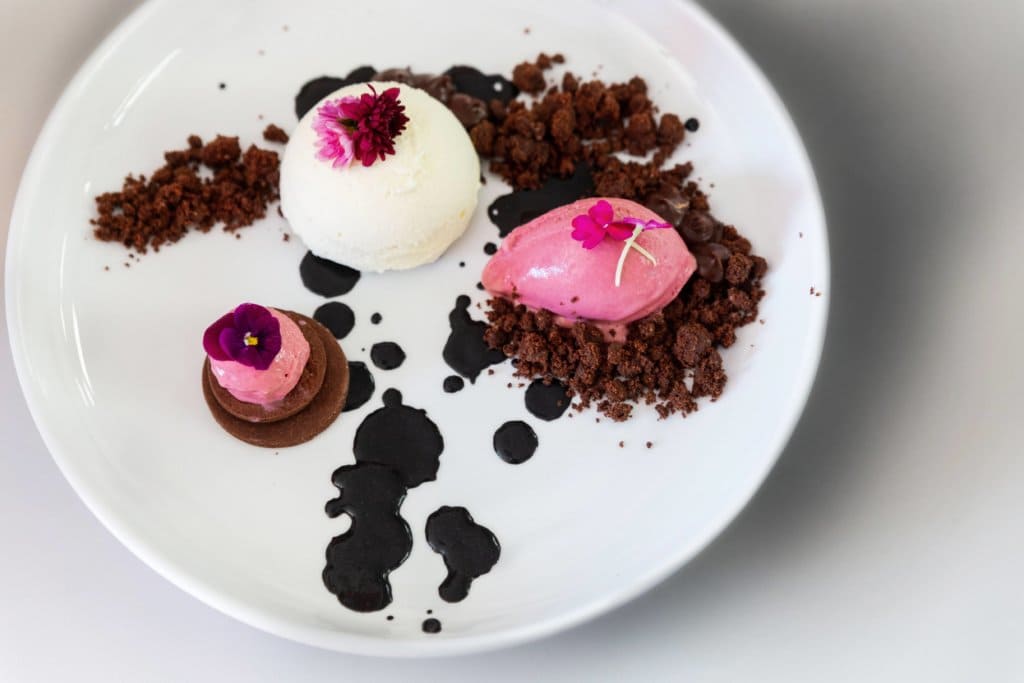
If you enjoy spending your time crafting delicious desserts and find yourself expressing your creativity through kitchen creations, then a career as a pastry chef may be the right career for you! But, where to begin? Starting a career as a pastry chef isn’t as easy as it may seem – aside from an
extensive amount of kitchen training, there is a lot of organizational and logistical work that goes into becoming a successful pastry chef.
This guide will break down this process step by step. Here we’ll tell you about what a pastry chef does, their average salary range, and how to start your own career in pastries – all from the first-hand experiences of an accomplished pastry chef.
What is a Pastry Chef?
Pastry chefs are specialty chefs who are experts in crafting a wide variety of pastry items – whether for breakfast, lunch, dinner, or dessert. While these chefs mainly focus on traditional pastries, they also have expertise in baking other foods, such as:
- Bread
- Cakes & Cupcakes
- Cookies
- Pies
- Tortes
- Ice Cream & Gelato
- Sweet rolls
- And every other type of confection you can think of!
A truly talented pastry chef is able to channel their creativity into the baking process – and will take care to artfully plate, present, and impress the customer with a tasty and visually pleasing experience. Versatile pastry chefs should be able to produce at a large scale in a bakery, or create detailed, individualized specialty orders.
Many pastry chefs are also trained in traditional culinary cooking techniques as well. In CulinaryLab’s pro culinary program, we teach you the fundamental culinary skills that will help you become well-rounded and versatile in the kitchen.
What Else Does a Pastry Chef Do?
Contrary to popular belief, the daily life of a pastry chef is full of much more than just baking. If you sign up for this career, you should also expect to handle the following aspects of the job:
- Managing staff underneath you
- Developing and managing a budget
- Creating and testing menus
- Handling customer complaints and/or special requests
- Drafting new recipes or reinventing classics with your own spin
- Inventing new and creative designs for your desserts
How Much Does A Pastry Chef Make?
The national average for pastries chefs varies widely based on certain factors, such as:
- Experience
- Specialty
- Location
- Reputation of the establishment
The starting salary for a pastry chef typically starts around $13.50 per hour and can potentially exceed $30 per hour. As of 2021, the national average for pastry chef earnings is around $19 per hour.
Once you begin putting in your hours and perfecting the craft, you can expect to see it reflected in your salary as well. Depending on the specialty you choose, where you live, and where you work, you can potentially earn a salary in the range of $60-100K per year.
Steps to Becoming a Pastry Chef
No matter what type of pastry you choose or where you live, there are certain steps you should take to help you have a successful start to your career. Following these will help to guide you in the path.
1. Make Your Decision – Culinary School or Pastry School?
The decision to specialize in a certain field doesn’t have to be made right off the bat. However, you should have a general idea if you want to specialize in pastry or culinary foods, so that you can choose the most beneficial educational experience. There is a wide difference in the skills and methods learned in culinary school versus pastry school. Making the decision early on as to whether you want to focus on pastry or be a culinary chef can help you to choose a program and school.
Once you’ve chosen the correct program, you can prepare for your curriculum. Pastry chefs can specialize in types of breads, baked goods, confections, cakes/cupcakes, pies, artisan chocolates or any type of dessert. If you want to open your own bakery or bistro, you may choose not to specialize and be varied to create a diverse menu.
If your goal is to work in a restaurant or hotel kitchen, you may specialize in desserts that can be mass produced. It depends on what you like and the career you want. This choice can come at any point in the process, and with the right training and education can vary as you develop in your career.
2. Enroll in Pastry School Courses
Learning firsthand in a kitchen can be valuable, but it can take you years longer to cultivate all the skills that you could learn in a more structured pastry school program.
We always recommend that you enroll in pastry school courses so that you can learn these skills via an organized curriculum. Our pastry school curriculum was developed by our founder, Ryan Wagner, and his team of chefs. Our team has the necessary real-world experience to know just how to prepare students for the challenges of an unforgiving pastry kitchen.
While pastry school is an investment, the skills you learn in a short year could take far longer to learn in the field. Plus, mistakes in pastry school are encouraged – we know that the only way to succeed is to learn from failures. Chefs in a professional setting will be far less forgiving.
If you’d like to know more details, we suggest that you schedule a tour with CulinaryLab. Speaking one-on-one with a professional about the difference a diploma can make in your career – including better pay, better job opportunities, lessons/skills learned, connections made, and apprenticeships offered.
3. Hands-On Experience In The Classroom
There’s no denying that a school setting can be limiting. No matter how much you can learn from lectures, the best way to learn and test your knowledge is with a hands-on approach.
Learning the fundamentals like melting temperatures for sugar, or recipes for speciality breads can be learned from a book, but the practical knowledge and muscle memory can only be gained from practice. You’ll need to spend time in a kitchen to learn the best techniques, learn while you are performing, and discover the methods and types of desserts that you like best.
Having a skilled professional there to guide you on the journey will guarantee you the best results. Many colleges or programs will provide you with a mentor or place you in an apprenticeship program where you can take the skills you learned in a class to the real world and gain practice with the safety net of a mentor or professional chef.
4. Learn the Advanced Techniques and Concepts
Once you have the recipe basics down and you understand how a kitchen works, you’ll need skilled instruction on the advanced concepts and techniques. You’ll master tough techniques like how to tier or sculpt a cake into a beautiful piece of edible art.
There are not only carving and cake skills, but also skills associated with breads, sugars, chocolates, and creating themed desserts for clients. Any of the best pastry chefs in the world will tell you that these techniques can only be mastered through constant practice – don’t be afraid of trial and error!
5. Start Working in a Kitchen or Bakery!
Once you have the training and know how to apply the concepts, you’ll need to get started working! You’ll need connections, a solid resume, and the right attitude to land the best jobs. Then you can begin building your reputation and portfolio to continue advancing throughout your career.
You’ll begin at an entry level position as a pastry chef, general chef, or a cook. From there, you can show the skills that you have and over time, you’ll advance. You’ll need to put in the time and learn along the way to get to the upper level positions. If you have an education or made connections in school, you’ll have a leg up on the competition.
FAQ – Answered by Professional Pastry Chefs
What Other Types of Culinary Careers are There?
If you have a culinary career, you can pursue many career options. Many will become restaurant managers, executive chefs, or head chefs. The other alternatives are personal chefs, caterer, baker, pastry chef, concierge, sous chefs or food writers.
What Non-Technical Skills Do You Need To Be a Successful Pastry Chef?
Successful pastry chefs not only need to have an intimate knowledge of baking techniques, they also need to be creative individuals who are able to multitask, excel at time management, and have the patience to learn and master new skills at any given point in their career. Consistently successful professionals in any industry all share the same quality of adaptability – if you can’t move with the times, then you’ll fall to the wayside!
What Are Some Perks of Becoming a Pastry Chef?
A career as a pastry chef comes with some interesting perks. Most importantly, you get to use desserts as your canvas to express your creativity. You’ll never do the same thing each day, as every day in the “office” involves creating custom treats. You’ll get to taste all of the best sweet, great if you have a sweet tooth! It also comes with the ability to work and study the types of creations all over the world or anywhere in the country!
Where Do Pastry Chefs Work?
Pastry chefs are not just limited to a kitchen. While they may thrive in a bakery or professional kitchen, there are a host of places that you could work. Some of the most common job locations include:
- Hotels
- Restaurants
- Cafes
- Bistros
- Grocery Stores
- Cruise Ships
- Resorts
- Catering Companies
- Casinos
What Types of Pastries Are There?
There are SO MANY different types of pastries all over the world! It is a diverse type of desert, but pastries can typically be broken into seven different categories:
- Puff Pastry
- Shortcrust Pastry
- Pate Sucree Pastry
- Phyllo, aka Filo, Pastry
- Rough Puff Pastry
- Choux Pastry
- Hot Water Crust
Within this variety are a host of types that you may be familiar with – such as cannoli, baklava, cream horns, croquembo, strudel, eclairs, and many more!
I’m Convinced! What’s the First Step?
If you’re ready to make the leap or want further information, you can follow up with CulinaryLab School. The experienced professionals at our institution can teach you everything from the basic skills to the advanced techniques. Our pastry school offers a chance to study with the best and learn crucial skills to help you succeed in your career.
With our apprenticeship partnerships, you have the opportunity to apply your training in a professional setting , and make money back while completing your coursework. At CulinaryLab School, you can make life-long friendships and gain a priceless experience. Contact us today to learn more about our pastry school program.
